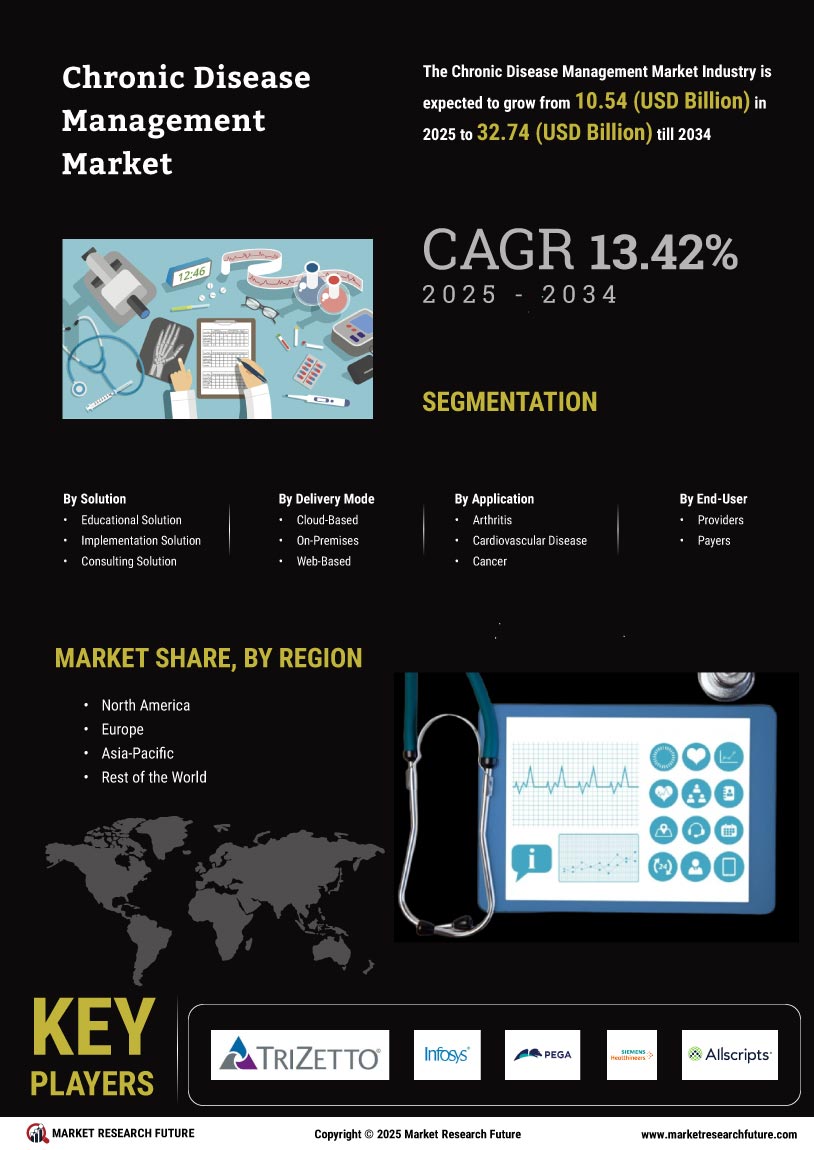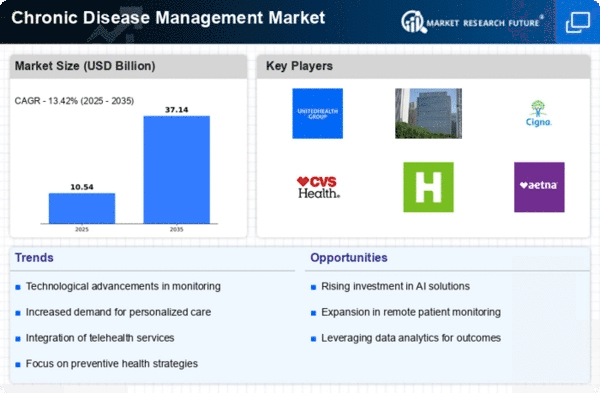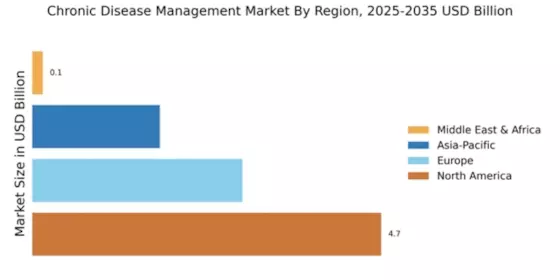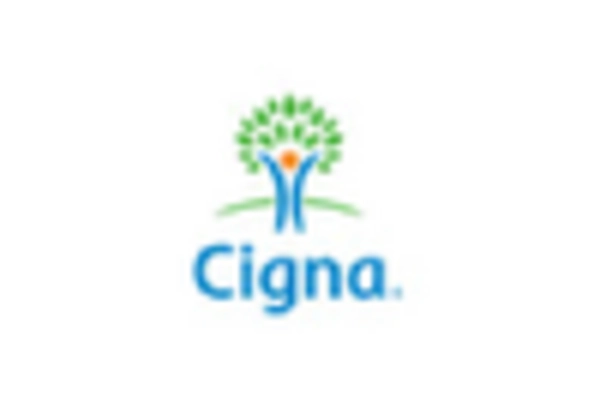Aging Population
The aging population is a critical driver of the Global Chronic Disease Management Market Industry. As individuals age, the likelihood of developing chronic diseases increases, necessitating effective management strategies. By 2035, the global population aged 60 years and older is expected to reach 1.4 billion, which will likely exacerbate the demand for chronic disease management solutions. This demographic shift compels healthcare systems to adapt and invest in tailored programs that address the unique needs of older adults. Consequently, the market is anticipated to grow at a CAGR of 5.19% from 2026 to 2035, reflecting the increasing focus on geriatric care.
Market Growth Projections
The Global Chronic Disease Management Market Industry is poised for substantial growth, with projections indicating a market value of 40 USD Billion by 2035. This anticipated growth is underpinned by a compound annual growth rate (CAGR) of 5.19% from 2026 to 2035. Various factors, including the rising prevalence of chronic diseases, technological advancements, and supportive government policies, are expected to drive this upward trajectory. The market's expansion reflects a broader recognition of the need for effective chronic disease management solutions that can enhance patient quality of life and reduce the burden on healthcare systems.
Growing Awareness and Education
Increasing awareness and education regarding chronic diseases are vital factors propelling the Global Chronic Disease Management Market Industry. Public health campaigns and educational programs are effectively informing individuals about the importance of early detection and management of chronic conditions. This heightened awareness encourages patients to seek timely medical intervention and adhere to prescribed treatment regimens. As a result, healthcare providers are witnessing an uptick in demand for chronic disease management services. The ongoing emphasis on patient education is likely to foster a more proactive approach to health, thereby contributing to the overall growth of the market.
Government Initiatives and Policies
Government initiatives aimed at improving healthcare access and quality are pivotal to the Global Chronic Disease Management Market Industry. Various countries are implementing policies that promote preventive care and chronic disease management programs. For example, the Centers for Medicare & Medicaid Services in the United States have introduced initiatives to enhance care coordination for patients with chronic conditions. Such policies not only aim to reduce healthcare costs but also improve patient outcomes. As governments continue to prioritize chronic disease management, the market is expected to expand, driven by increased funding and support for innovative healthcare solutions.
Rising Prevalence of Chronic Diseases
The Global Chronic Disease Management Market Industry is experiencing growth due to the increasing prevalence of chronic diseases such as diabetes, cardiovascular diseases, and respiratory disorders. As of 2025, the market is valued at approximately 22.9 USD Billion, reflecting a heightened demand for effective management solutions. The World Health Organization indicates that chronic diseases account for nearly 71% of all deaths globally, underscoring the urgent need for comprehensive management strategies. This trend is likely to drive investments in innovative healthcare technologies and services aimed at improving patient outcomes and reducing healthcare costs.
Technological Advancements in Healthcare
Technological innovations are significantly influencing the Global Chronic Disease Management Market Industry. The integration of telemedicine, wearable devices, and mobile health applications facilitates real-time monitoring and management of chronic conditions. For instance, remote patient monitoring systems have shown to enhance patient engagement and adherence to treatment plans. As healthcare providers increasingly adopt these technologies, the market is projected to grow, potentially reaching 40 USD Billion by 2035. This shift towards digital health solutions not only improves patient access to care but also streamlines healthcare delivery, thereby addressing the complexities associated with chronic disease management.

















